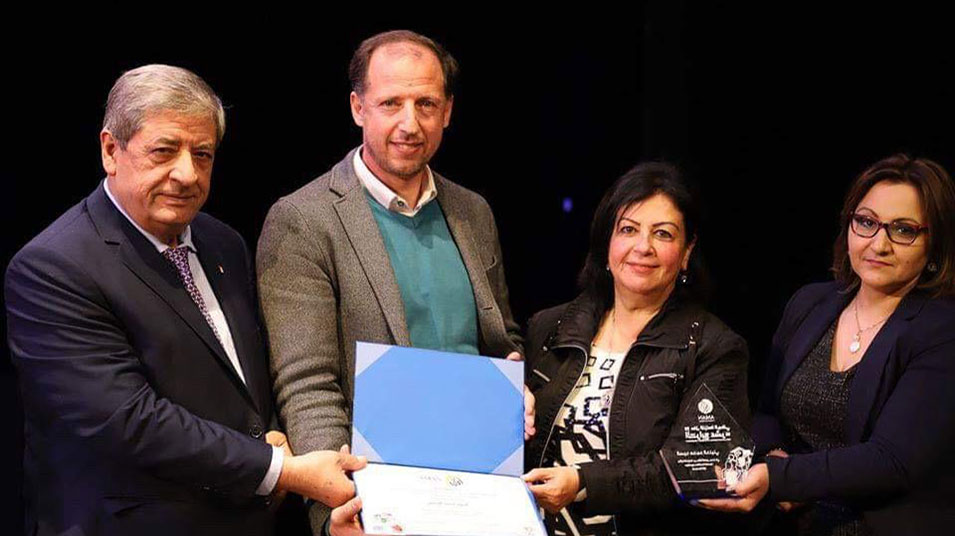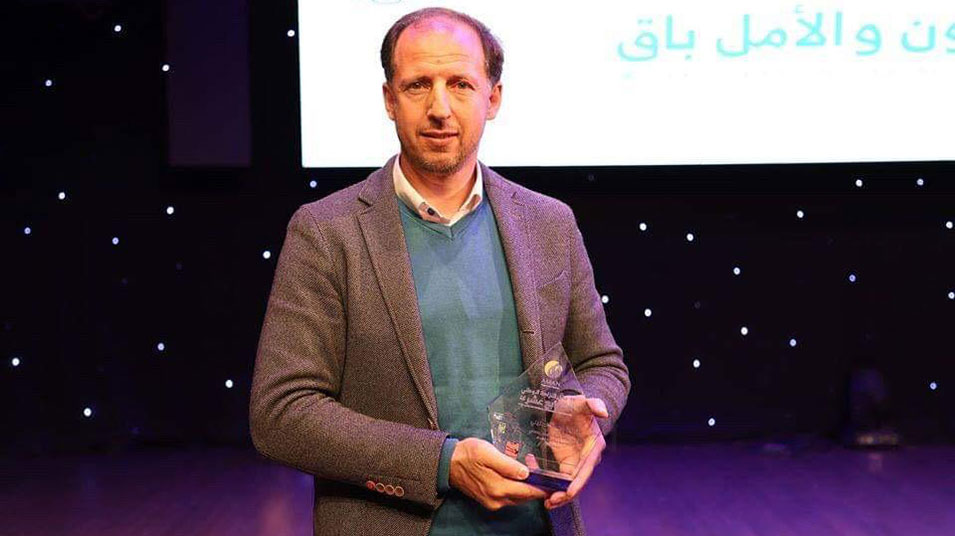Law faculty member Mohammad Hanini wins AMAN’s anti-corruption research award
Mohammad Hanini, an assistant professor at Birzeit University’s Faculty of Law and Public Administration, was awarded the Best Anti-Corruption Research award at the annual national transparency ceremony of AMAN Coalition for Accountability and Integrity, marking International Anti-corruption Day.
The research was chosen among twelve studies from the West Bank and the Gaza Strip.
Hanini’s study explores the extent to which religious traditions and Islamic legacy can contribute to the ongoing anti-corruption efforts in the Palestinian public sector. It measures the current status of governmental intuitions in terms of their employment of religious teachings and suggests future approaches to integrate religious values in efforts to fight corruption.
Hanini’s study applies qualitative and quantitative research methods, exploring previous relevant research and literature and analyzing 800 surveys that were distributed among employees in the public sector (at ministries, security institutions, governorates and municipalities). For the purpose of the study, Hanini investigated the laws and regulations as well as the practices that are applied to combat corruption in the public sector and examined whether they adhere to religious commandments and traditions.
The study results indicate that the current utilization of religious values in the fight against corruption is moderate, even though the opinions and behavior of public sector employees, according to the study, are formed by religion in the first place and by the laws and regulations only in the second place. The surveyed employees strongly support potential future measures that would integrate religion into the ongoing efforts to combat corruption and expressed their firm belief in the success of such measures.
Hanini in this study merely affirms the importance of integrating religious values into the efforts of combating corruption but does not suggest these as an alternative to laws and regulations or other measures. Mutual values and traditions can be employed to achieve good governance. He calls upon decision makers to implement the study’s results and recommendation by issuing laws, regulations and administrative decisions, in addition to integrating religious legacy into the internal systems and cultures of institutions and their codes of conduct, among other practices.








